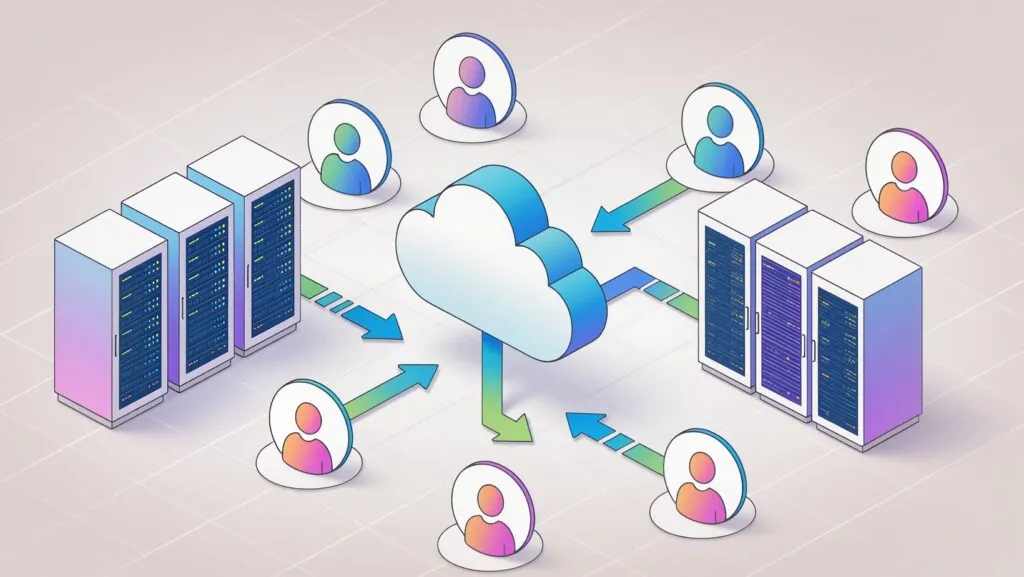Table of Contents
ToggleIn a world where tech trends change faster than a cat can knock something off a table, staying ahead of the curve is more crucial than ever. From AI that can write poetry to gadgets that promise to make your morning coffee while you sleep, the tech market is a wild ride. It’s not just about keeping up; it’s about thriving in a landscape that’s constantly evolving.
Overview of Tech Market Trends
Technological advancements continue to reshape industries across the globe. Businesses leverage artificial intelligence for various functions, including customer service, data analysis, and personalized marketing. Cloud computing remains a critical component in enhancing business agility, allowing companies to scale operations and reduce costs effectively.
Contactless payment solutions have gained popularity, with a 20% increase in adoption in the last year. This trend reflects a significant shift in consumer behavior, as users increasingly prefer transactions that prioritize convenience and security. Similarly, the demand for remote work solutions persists, impacting software development and IT infrastructure.
Cybersecurity has emerged as a top priority for organizations. The rise in cyber threats led to an increase in spending on security measures, projected to reach $200 billion by 2024. As digital threats evolve, companies must adapt their strategies to safeguard sensitive data.
Sustainability trends also influence tech market dynamics. Firms are increasingly adopting green technologies, focusing on energy-efficient products and eco-friendly practices. This shift not only addresses environmental concerns but also appeals to a growing number of environmentally conscious consumers.
Additionally, the Internet of Things (IoT) continues to expand. Analysts estimate that there will be over 30 billion connected devices by 2025. These devices enhance connectivity and efficiency across various sectors, from smart homes to industrial automation.
The tech workforce is also evolving. A focus on diversity and inclusion in hiring practices has gained traction. Companies recognize that diverse teams drive innovation, leading to more robust problem-solving capabilities.
Staying informed about these trends ensures that businesses remain competitive. Adapting to emerging technologies and changing consumer preferences is essential in this fast-paced landscape.
Key Emerging Technologies

Emerging technologies reshape the tech landscape constantly. Companies must adapt to remain competitive in this dynamic environment.
Artificial Intelligence Developments
AI technologies are advancing rapidly. Businesses utilize natural language processing to enhance customer interactions and streamline operations. Chatbots, powered by AI, significantly improve response times, leading to higher customer satisfaction. Furthermore, machine learning algorithms enable companies to refine their product offerings based on data-driven insights. As a result, the application of AI in marketing and sales is set to expand, improving targeting and personalization.
Blockchain Innovations
Blockchain technology is gaining traction across various industries. Its decentralized nature enhances transparency and security, attracting financial institutions and supply chain companies. Non-fungible tokens (NFTs) are also rising in popularity, revolutionizing art and digital ownership. Companies are exploring blockchain for secure voting systems and identity verification, demonstrating its potential beyond cryptocurrency. The global market for blockchain solutions is projected to reach $67.4 billion by 2026, highlighting its significance in the tech sector.
Internet of Things Expansion
IoT devices are becoming integral to daily life. Predictions indicate that over 30 billion connected devices will be in use by 2025. Smart homes and cities rely on interconnected systems for improved efficiency and convenience. Industries, such as healthcare and agriculture, leverage IoT for real-time data collection and analysis, enhancing decision-making. Furthermore, IoT’s impact on logistics and inventory management streamlines operations, contributing to overall productivity growth.
Market Analysis
Tech market dynamics shift rapidly. Innovations in artificial intelligence, cloud computing, and sustainability are at the forefront of current trends. AI technologies, such as chatbots and natural language processing, enhance customer service and operational efficiency. This reliance on AI reflects businesses’ need for data-driven insights. Cloud computing offers improved agility and adaptability, essential for meeting changing demands.
Current Market Landscape
The contactless payment sector shows a notable 20% rise in adoption. Consumer preferences lean toward convenience, influencing this trend. Cybersecurity investments are expected to reach $200 billion by 2024 due to escalating digital threats. Sustainability remains vital as companies increasingly adopt green technologies. The Internet of Things expands significantly, with predictions indicating over 30 billion connected devices by 2025. This connectivity transforms various sectors, including smart homes, healthcare, and agriculture.
Future Forecasts
Looking ahead, AI applications will continue to evolve, shaping marketing and sales strategies. Blockchain technology is set to grow, with the global market projected at $67.4 billion by 2026. Enhanced transparency and security drive this expansion across multiple industries. The tech workforce is likely to emphasize diversity and inclusion, fostering innovation. As trends solidify, organizations must stay informed and adapt to maintain competitiveness in the tech landscape.
Consumer Behavior Changes
Consumer behavior is evolving rapidly as technology reshapes how people work and shop. Companies that understand these changes will stay competitive in the tech market.
Impact of Remote Work
Remote work has transformed the workplace. Employees now prioritize flexibility and work-life balance. This shift leads to increased demand for digital collaboration tools and platforms. Increased adoption of remote work solutions drives companies to invest in technology that enhances communication. A study found that 73% of employees prefer flexible work arrangements, showcasing the strong preference for this new norm.
Shifts in Purchasing Decisions
Purchasing decisions are increasingly driven by convenience and value. Consumers now favor online shopping, with e-commerce sales reaching $5.2 trillion in 2021. Prioritizing sustainable options also influences choices, as 67% of consumers prefer brands with eco-friendly practices. Subscription services are gaining traction, providing seamless shopping experiences. The focus has shifted toward personalized marketing, where tailored recommendations enhance engagement and encourage purchases.
Competitive Landscape
The tech industry features a dynamic competitive landscape characterized by both established firms and emerging startups. Market players focus on innovation and agility to secure their positions.
Major Players in the Tech Industry
Top tech companies lead the market through robust offerings and strategic initiatives. Microsoft consistently evolves its cloud services, making significant investments in AI and cybersecurity. Amazon dominates e-commerce and continuously enhances its logistics networks. Apple’s innovation in consumer electronics drives brand loyalty and market penetration. Google excels in digital advertising while prioritizing advancements in AI technology. These companies leverage vast data sets to inform product development, ensuring they stay relevant in a rapidly changing environment.
Startups to Watch
Innovative startups attract attention across the tech sector with fresh approaches and disruptive technologies. Companies like UiPath specialize in robotic process automation, streamlining business operations. Notable mentions include Notion, which offers versatile productivity tools that cater to diverse team needs. Another standout is Alaska Airlines, utilizing AI-driven solutions to enhance customer experience. Investing in these startups presents opportunities for significant growth as they capitalize on changing consumer demands and tech trends.
The tech market’s evolution presents both challenges and opportunities for businesses. Embracing innovations like AI and IoT will be crucial for staying competitive. As consumers increasingly prioritize convenience and sustainability, companies must adapt their strategies to meet these demands.
The focus on cybersecurity and the rise of blockchain technology highlight the importance of trust and transparency in the digital age. Additionally, fostering diversity within teams can drive the creativity needed for future advancements.
By remaining agile and informed about emerging trends, businesses can navigate this dynamic landscape and position themselves for success in the years ahead.




